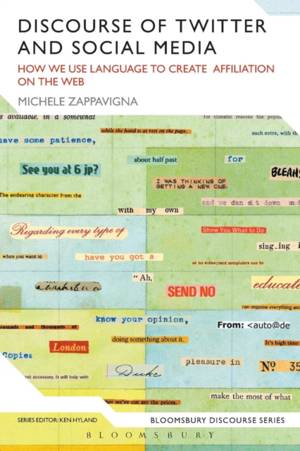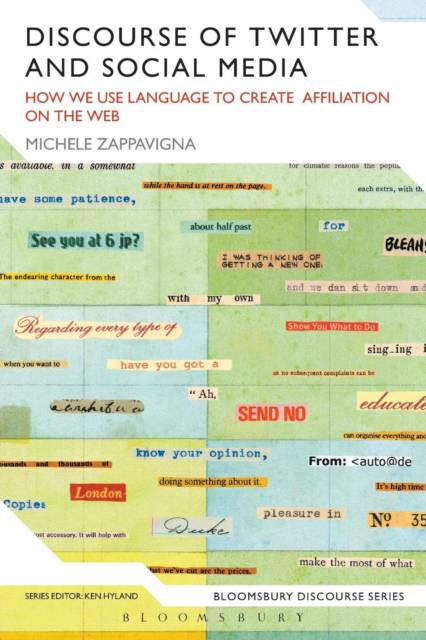
- Retrait gratuit dans votre magasin Club
- 7.000.000 titres dans notre catalogue
- Payer en toute sécurité
- Toujours un magasin près de chez vous
- Retrait gratuit dans votre magasin Club
- 7.000.0000 titres dans notre catalogue
- Payer en toute sécurité
- Toujours un magasin près de chez vous
Discourse of Twitter and Social Media
How We Use Language to Create Affiliation on the Web
Michele ZappavignaDescription
Social media such as microblogging services and social networking sites are changing the way people interact online and search for information and opinions. This book investigates linguistic patterns in electronic discourse, looking at online evaluative language, Internet slang, memes and ambient affiliation using a large Twitter corpus (over 100 million tweets) alongside specialized case studies. The author argues that we are currently witnessing a cultural movement from online conversation to what can be termed 'searchable talk' - online talk where people affiliate by making their discourse findable (for example, via metadata such as Twitter hashtags) by others holding similar interests. This cutting edge text will be of interest to all scholars and students dealing with electronically mediated discourse.
Spécifications
Parties prenantes
- Auteur(s) :
- Editeur:
Contenu
- Nombre de pages :
- 240
- Langue:
- Anglais
- Collection :
Caractéristiques
- EAN:
- 9781472531544
- Date de parution :
- 09-01-14
- Format:
- Livre broché
- Format numérique:
- Trade paperback (VS)
- Dimensions :
- 156 mm x 234 mm
- Poids :
- 340 g

Les avis
Nous publions uniquement les avis qui respectent les conditions requises. Consultez nos conditions pour les avis.






